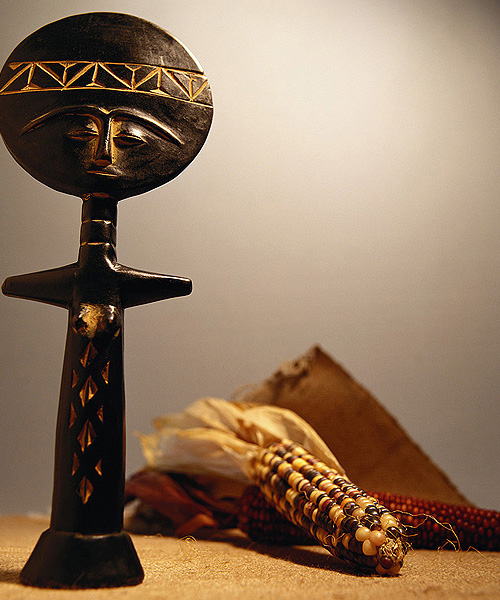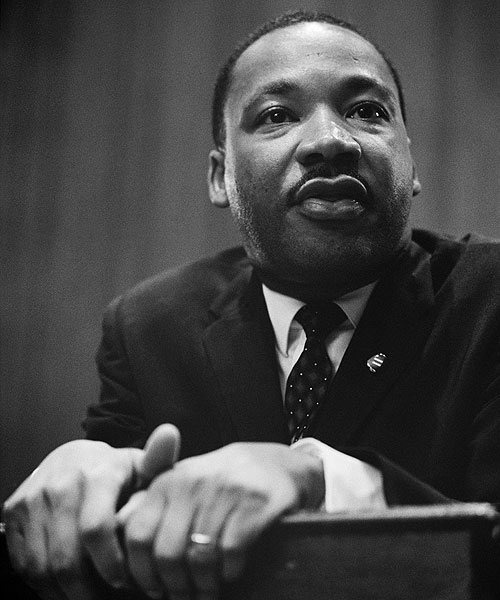
History of Kwanzaa
- ArticlesandContent.com (CIRCA 2005)
- /
- Oct 8, 2021 (written 2005)
Kwanzaa is a secular, week long holiday which honors the heritage of African-Americans. The holiday is observed from the 26th of December through the First of January. Most observers are themselves African Americans within the United States.
Each of the seven days of Kwanzaa features certain celebrations and ritual activities including the lighting of candles, the pouring of libations, a feast and an exchange of gifts.
Kwanzaa was started by leading Black Nationalist and political activist, Ron “Maulana” Karenga in 1966 in California. As he himself states, Kwanzaa was originally established as “…a Black alternative to the existing holiday [Christmas] [to] give Blacks an opportunity to celebrate themselves and history, rather than simply imitate the practice of the dominant society.” Although some people think Kwanzaa was adapted from traditional African ritual and celebration; that is in fact not the case. Kwanzaa was constructed in such a fashion as to feel traditionally African since African-Americans, in the opinion of Kwanzaa’s founder, would be less likely to celebrate it if they knew immediately of its American invention. The time Ron Karenga chose for Kwanzaa’s celebration also had practical articulations, as the time between Christmas and New Year’s Day was the height of party season for large street gangs like the Bloods.

Although Kwanzaa itself is American, the term is derived from East African Swahili -kwanza, which means ‘first fruits’. A Swahili term was chosen specifically to accentuate the Pan-African spirit of the Kwanzaa celebration. This fact is made more explicit when one recalls the vast majority of African-Americans are the descendents of West Africans. The term carries other connotations as well. The extra ‘a’ was added, in part, so that every letter in the name would stand for one of ‘Seven Principles of Blackness’.
Kwanzaa gifts
One of the Seven Principles of Blackness, Kuumba, or creativity, is encouraged through the exchange of gifts. Kuumba is particularly important among the seven principles as a sense of self-worth and self-satisfaction, individually and throughout the community, is said to emerge from the creative and expressive (artistic) character of human labor. Gifts exchanged during Kwanzaa are supposed to be educational or creative in nature, and in many cases are home-made items of important symbolic relevance to Kwanzaa. In most cases gift-giving is done on the last day of Kwanzaa, but gifts can be exchanged at any time during the celebration.
Kwanzaa Celebrations
Generally a family celebrating Kwanzaa will display art objects and African cloth of rich color throughout the house. Women will often don an Uwole, a colorful African style dress. Fresh fruit will also be placed upon a table as a representation of African idealism. The celebration itself is supposed to include a number of ceremonial activities: Drumming and music, libations, a recitation of the “African Pledge” and a recitation of the ‘Principles of Blackness’. Discussion of African history and current events will also feature heavily along with the candle-lighting ceremony, performances, and a feast. To emphasize the discursive intent of Kwanzaa (that is, to encourage African-Americans to talk and work together to solve community-wide problems) each day of Kwanzaa is greeted with the Swahili phrase Habari Gani, which means ‘what’s the news?’
The Kwanzaa story
Kwanzaa celebrates what Ron Karenga has termed ‘The Seven Principles of Kwanzaa’ or Nguzu Saba. The concept is said to be Karenga’s iteration of the ‘best of African thought and practice’ and how these thoughts and practices ought to interact with the world. The seven principles constitute the Kawaida which is another Swahili terms with connotations of tradition and reason. Each day of the seven day Kwanzaa celebration is devoted to honoring and contemplating one of the seven principles: Umoja (unity), Kujichagulia (self-determination), Ujima (collective work and responsibility), Ujamaa (cooperative economics), Nia (purpose), Kuumba (creativity), and Imani (Faith). The story of Kwanzaa is that through living these seven principles the African-American community can, through collective effort and diligence, regain the greatness their ancestors knew.
Kwanzaa, while still a holiday honoring African heritage, can be celebrated by any individual of any culture or race.
Kwanzaa and Black history
The Kwanzaa celebration is inextricably linked in time and origin to the civil rights movement of the 1960’s. While most of the activity associated with the civil rights movement was of a political or social-economic nature, there was a cultural struggle waged as well. Kwanzaa helped many African-Americans reclaim and reconnect with the heritage and culture of their African ancestry. Though originally conceived as an alternative to Christmas, to observe Kwanzaa today need not exclude the observance of Christian ritual and belief. In many households it is not uncommon to find both a Christmas tree and a ‘kinara’, the traditional candle holder used in the Kwanzaa celebration.
Although Kwanzaa was intended as a holiday specifically for African-Americans, it is a little known fact of black history that in 1997 Ron Karenga amended this position. Kwanzaa, while still a holiday honoring African heritage, can be celebrated by any individual of any culture or race. He uses the examples of Cinco de Mayo, and Chinese New Year as culturally specific holidays celebrated and honored outside the cultures from which they came. Kwanzaa, like many social movements, has slipped into a post-modern thinking that stresses both integrity and identity of a particular group while not excluding others from other groups from participation. Indeed, this post-modern approach to identity politics is even better exemplified by the following statement from the official Kwanzaa website which says Kwanzaa “…is not an alternative to people’s religion or faith but a common ground of African culture.” Kwanzaa is, according to Ron Karenga, about African-Americans coming together to make proactive and positive choices for their community instead of reactive ones.

Famous black people in history
Given its focus on the achievements (past, present, and future) of the Pan-African community, Kwanzaa is also a time for celebrants to reflect upon achievements of famous black people in history, whether political and social leaders like Malcom X, Martin Luther King Jr., and Rosa Parks, or scientific and cultural leaders such as Washington Carver, Josephine Baker, Rita Dove, Spike Lee, Maya Angelou, Alexandre Dumas (the guy who wrote The Three Musketeers), Oprah Winfrey, or even Robert L. Johnson (the man who started Black Entertainment Television (BET)).